Better late than never, my round-up of 2013 reading. I read 21 books, here are Nos. 15-21 (plus scattered other reading and 4 abandoned books), ranked in order of preference. Not necessarily in order of literary greatness, but in terms of my enjoyment of the book, whether it dazzled me with language, or made me think new thoughts, or made me want to make things, or made me feel something, or all of the above.
****
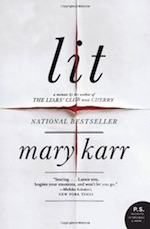
15. LIT: A Memoir (2009) – Mary Karr
Absorbing account of her trajectory as a writer and recovery from alcoholism. Tough & funny. Maybe too coy about her friendships with literary heavyweights (for example, she had a relationship with David Foster Wallace, but only ever refers to him as David & glosses quickly over the affair), though it must be hard to decide what to include if you’re writing about your whole life. An unflinching account of her spiritual/religious development, a touchy subject if there ever was one.
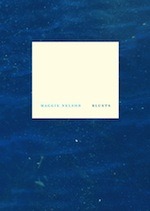
16. Bluets (2009) – Maggie Nelson
This is labelled a memoir, but is its own made-up genre of numbered sections, which made this compulsively readable and added to the detached, cold quality. I liked how it was philosophical and wandering. A person dissecting her own pain. But maybe, ultimately, the coldness is what kept me from loving it? We get the sex with the beloved, the depression following the loss of the beloved, lots of blue, but never the beloved himself – why he was beloved. I also was averse to the voice’s awareness of the book itself, didn’t seem necessary (i.e., “I had all of these scraps I’ve been working on, I ordered them randomly, here they are”).
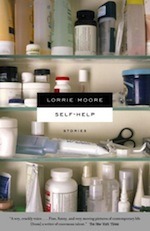
17. Self Help (1985) – Lorrie Moore
Lorrie Moore’s first story collection, not really fair to judge it against her later collections (all of which I read before this) because she just gets better. “What Is Seized” was my favorite in this collection. Didn’t like “A Kid’s Guide to Divorce”, & I couldn’t read the one about the woman with breast cancer, because the first paragraph made my heart stop.
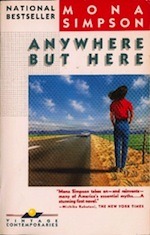
18. Anywhere But Here (1992) – Mona Simpson
Novel. This seemed to me a keen portrait of mother-daughter emotional abuse, though I didn’t see that addressed in any of the reviews I read. It was raw & disturbing in that sense.
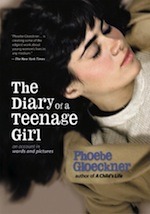
19. Diary of a Teenage Girl (2002) – Phoebe Gloeckner
Graphic novel. Intense, intimate, difficult. Especially enjoyed the dark view of San Francisco in the 1970s, when the 60s grooviness gave way to something more frivolous and destructive.
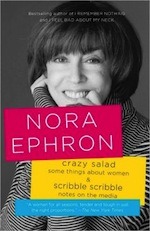
20. Crazy Salad: Some Things About Women – Nora Ephron (1975)
Essay collection. More involved in the specifics of 1970s politics and perspectives than I had hoped, though her view of Gloria Steinem, the women’s movement as it was happening was pretty fascinating.
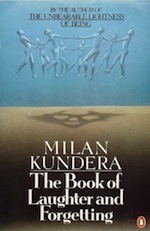
21. The Book of Laughter and Forgetting (1980) – Milan Kundera
Crankypants Kundera in full force here, particularly the second half, in which he performs a Lars von Trier-esque extended torture of his heroine. I wouldn’t call it magical realism…. Though I did enjoy the scene among the Russian poets. Good quote here.
PIECEMEAL READING
Short stories, but not entire books by Grace Paley and Clarice Lispector
Susan Sontag essays from Against Interpretation
POETRY
Didn’t read much poetry this year, a bit of an exile year. I don’t count these as “books read” as I dipped in and out of volumes of: Gerard Manley Hopkins, Rilke, Adrienne Rich, Sandra Simonds’ Warsaw Bikini, and David Lehman’s New and Selected.
ABANDONED READING
The Idiot (1869) – Dostoevsky
I spent two months reading this novel and made it over halfway through. I will return to it!! Need more uninterrupted time.
No Kidding: Women Writers on Bypassing Parenthood (2013)
The writers are mostly comedians, so a lot of the essays started sounding the same. I read maybe half of them.
Black Paths (2013) – David B.
Just couldn’t get into this graphic novel, even though I bought a beautiful full-color hardback edition. Oh well.
Heroines (2012) – Kate Zambreno
In theory, I’m the ideal reader of this book, which is, ostensibly, about the women of modernism, in particular those relegated to the wifey role (Zelda Fitzgerald, Viv Eliot) or struggling with mental illness (Virginia Woolf). But I couldn’t stand the humorless narcissism of the narrator and her conflating of her 21st-century life with those trapped in much more narrow historical circumstances. Muddled arguments and muddled thinking under cover of l’écriture féminine. I actually returned this to the bookstore, which I don’t think I’ve ever done.
